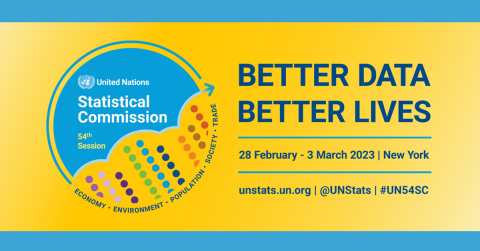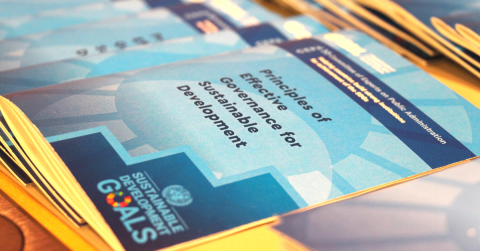More from UN DESA - March 2023
How the planet’s “lungs” contribute to our health and well-being
Forests make our lives better in countless ways. They sustain us – from clean air and water, to food and fuel, to medicines and income. Being near trees helps boost our immune systems, lower blood pressure, reduce stress, and improve mood. When forests are healthy and well-managed they safeguard the health of our planet, by mitigating climate change, protecting biodiversity, and building resilience to natural disasters.
Prioritizing the lives and livelihoods of the most vulnerable through risk-informed development cooperation
The world faces multiple crises involving climate change, economic uncertainty, food shortages and the energy crisis. Development cooperation is crucial during these times of global challenges and uncertainty. It underpins recovery efforts in developing countries, builds resilience and advances progress toward achieving the Sustainable Development Goals.
Shaping the future of global statistics
The United Nations Statistical Commission is holding its 54th session from February 28 to March 3, 2023, at the UN headquarters in New York. Established in 1947, the Commission is the apex body responsible for the development of global statistical standards, bringing together chief statisticians from around the world to deliberate on a wide range of important statistical issues, such as data stewardship, data innovation, SDG indicators, social and demographic statistics, economic statistics, and many more topics.
Urgently transforming institutions for a greener, more inclusive, and more resilient world
Five years ago, in July 2018, the UN ECOSOC endorsed the 11 principles of effective governance for sustainable development. These principles were developed by the UN Committee of Experts on Public Administration (CEPA) and focus on three governance pillars: effectiveness, accountability and inclusiveness.
One year of the war in Ukraine leaves lasting scars on the global economy
One year since Russia’s full-scale invasion of Ukraine, the war’s economic impact still reverberates around the world. The war – while not being the key factor explaining the slower-than-anticipated economic growth in 2022 and downgraded forecasts for 2023 – weighed negatively on global economic activity, adding to inflationary pressures worldwide and impeding the post-pandemic recovery.
 Welcome to the United Nations
Welcome to the United Nations




